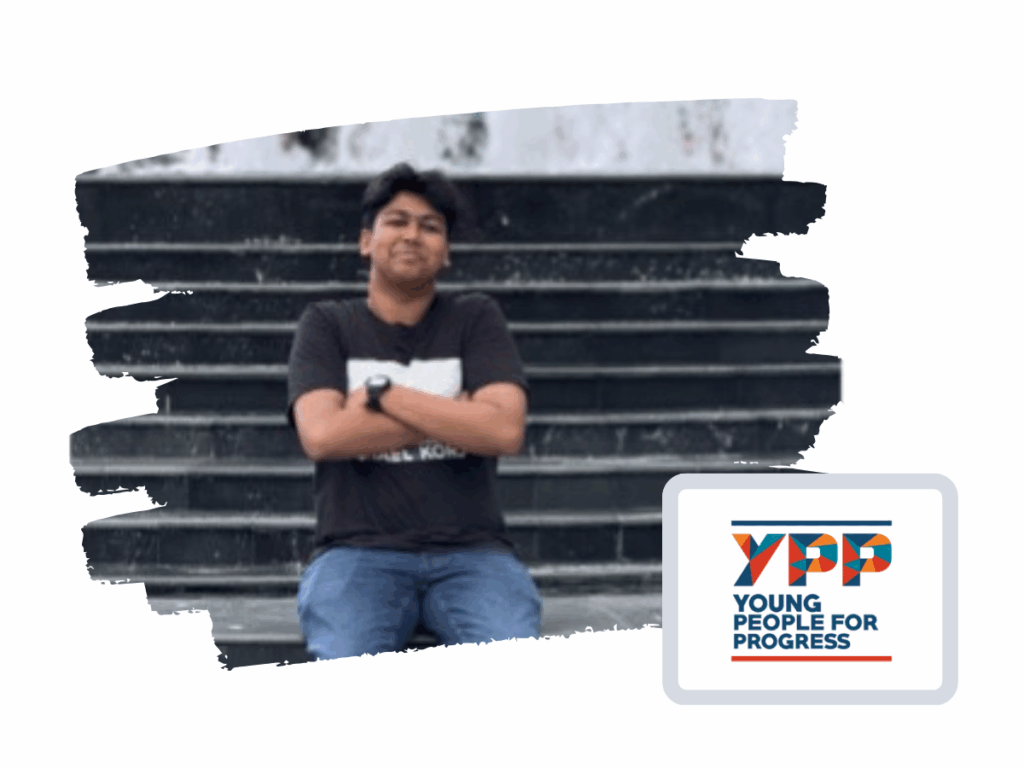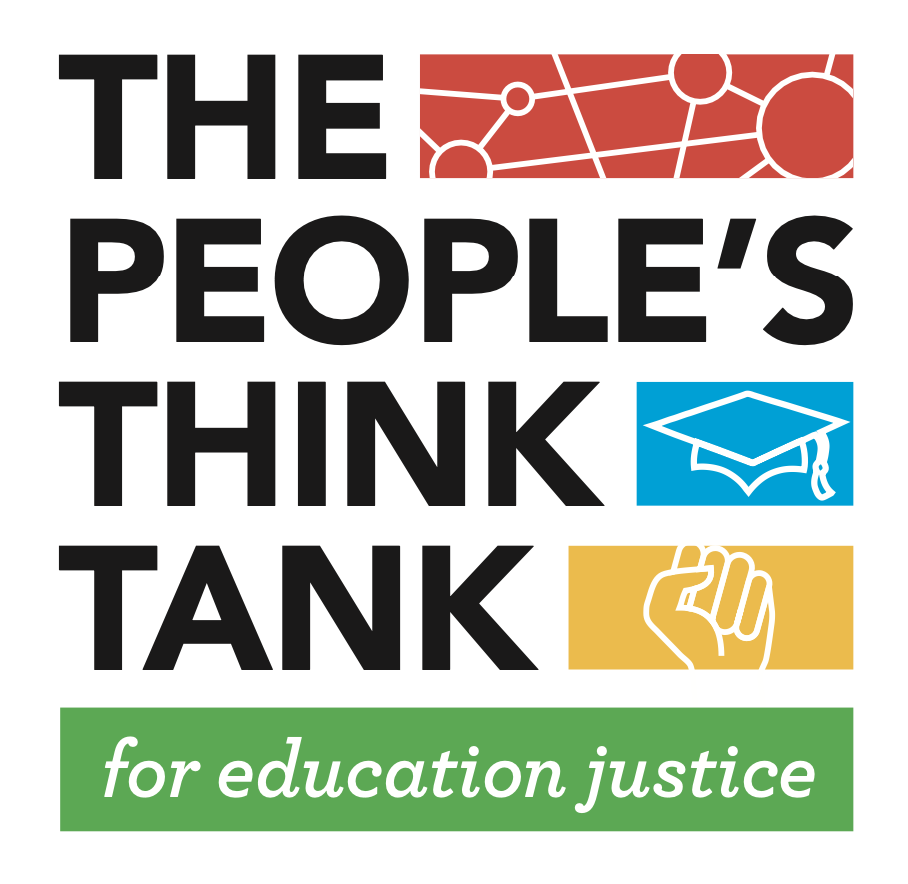
By: Evin Fernando, Young People for Progress (YPP) (May 2025)
Assisted by: A PhD student at the University of Massachusetts Boston
Evin Fernando, a 16-year-old youth organizer and leader in Montgomery County, Maryland, used his own racial challenges as a motivator for change. Evin’s story started at his predominantly white middle school, where he experienced discrimination and ignorance. By transferring to a majority-minority high school and getting to know Juan, the community organizer in Young People for Progress (YPP), Evin’s journey took a significant turn. Evin joined the board of YPP, where he exemplifies the potential of young organizers to have a significant influence in their communities. Evin demonstrates that age is not a barrier to making an impactful difference; rather, it is passion, commitment, and willingness in organizing that really matter. Evin reflects in this essay on how organizing in YPP has helped him to evolve his personal growth as his proudest achievement. Through his work as a youth organizer, Evin learned about advocating for justice, lobbying for different bills, delivering a testimony in front of the board of education, amplifying his voice and sharing it with others, and, most importantly to him, advocating for restorative justice.
Origins of a Passion to Organizing
My introduction to organizing and social justice started in my predominantly white middle school. My eighth-grade history teacher always treated me differently. One day, I was talking to my friends, and my teacher took something out of context from our conversation. It actually caused me to get lunch detention, and I had to write a letter of apology to him because he said my conversation offended him. This experience really frustrated me to the point where I wanted to do something about it because I feel youth voices are not heard enough. It’s really important that we amplify our voices and show that we want to be heard.
When I transferred to a majority-minority high school, I found myself in a more welcoming atmosphere, but I realized that our school is not represented enough in decisions about school resources. I noticed that we were missing textbooks and other resources for our classes that other schools have. Due to these shortcomings, sometimes I am forced to use resources from a different school just because our school doesn’t have enough.
My commitment to organizing is also fueled by a desire to protect my younger sister, who is going to the same middle school as me. I do not want my sister and other young students to experience anything negative and face the same injustices that I experienced. No one should be treated differently or discriminated against. Equality and safety should be our top priorities.
From New Beginning to Organizing in YPP
In the beginning of my freshman year, I started at a new school and initially struggled to fit in because I did not know people there. This challenge pushed me to find people who shared similar interests, particularly in organizing. During this time, I met Juan, the community organizer in Young People for Progress (YPP), through a friend of mine who’s now the YPP president. Witnessing so many injustices, I wanted to participate and get involved in organizing to fight them. Within YPP, I believe we can impact people directly. We fight for restorative justice at the high school level. We fight to limit or stop police searches during traffic stops. We lobby for bills at the statehouse, like the Child Interrogation Protection Act and the Second Look Act, to reform juvenile and criminal justice systems. These issues are the primary areas of our advocacy work.
To me, organizing has a short definition. It is about bringing people together to fight for change, to fight for what is right and a better environment. My journey took a significant turn when I met Juan in YPP. We become close friends through organizing. It is crazy how someone that you might not think will affect your life that much will actually become a really big part of your life.
As a YPP board member and chair of the media and communications committee, I am actively fighting for increased funding for restorative justice programs in our county. During the budget season, I had the opportunity to give testimony to the Board of Education. It was scary at first, but once I got going, I felt my words started flowing.
In our county, we only have eight restorative justice specialists for 26 high schools and even more middle and elementary schools, which is just not enough for our school system. At the same time, our restorative justice coaches are part-time teachers, so they cannot fully focus on restorative justice. We have been working hard to advocate for more specialists and resources to strengthen these programs, and we have seen some changes. We won an increase in restorative justice funds. This was really important and a really big win for YPP as a whole as well.
Moving Towards Restorative Justice
One of the significant experiences contributing to my development as an organizer was participating in restorative justice circle training. About a year ago, I attended a training session where I learned about restorative justice circles and their impact on all parties who are involved. This training helped me understand how people can feel differently about something and how they might react to conflict situations. There are different types of restorative justice circles. The first one we did at our school was a community-building circle, which I led once at a general body meeting. The goal of this circle is to bring the community closer and get to know one another better. There are three tiers of restorative justice circles, with community-building being the first tier, to help people get to know each other on a deeper level. We also had the conflict resolution circle where we made up scenarios to learn how to restore relationships between the affected party and the party that caused the situation to happen. I have since engaged in restorative justice circles multiple times, both through my organization and as a co-leader of a chapter at my school.
I want to bring about significant changes in schools by advocating for full-time restorative coaches, which is beneficial to all students. These coaches can provide education on restorative justice practices, similar to how counselors address issues like suicide awareness. Having restorative justice coaches in each school would positively impact students, helping them to navigate emotions and conflicts without resorting to suspensions or expulsions in schools.
From Favorite Moments to the Challenging Ones in Organizing
As an organizer, canvassing has become one of my favorite activities. I like engaging with my community door-to-door and in our mall. It is a chance to talk to people and discuss important issues that I am passionate about. While some residents may hesitate to open their doors, many, especially in the neighborhood around my school, have been supportive. We ask them about their views on police practices or punishment like suspensions, and I can have rich conversations with them.
When it comes to the challenges, one of the first challenges everybody faces is to find the right organization that truly resonates with them. I realized that if I joined a group just for my resume or without genuine interest, it would not work for me. There are various clubs and organizations available for students to join. We need to be passionate about making an impact on our community to join YPP.
Since I joined YPP, I’ve found several organizations that resonate with me, like the Alliance for Educational Justice, Popular Democracy, and Democratic Socialists of America (DSA). I actually started a DSA chapter at our school, and that all came through YPP, my first initial organization. I’m also involved in environmental organizations like Eco MoCo. Once you get the ball rolling, it keeps going.
Another challenge we encounter is dealing with pushbacks, like the time we were lobbying to lower the age to vote for Board of Education members to 16. We spoke to a senator who was against it, and, despite our efforts to explain the bill, he had already made up his mind.
The Joy of Organizing with Peers
I enjoy collaborating with fellow high schoolers who are also involved in organizing. I value the sense of reliability that comes from working with peers who are similar to me and working towards the same goal. We do weekly high school organizing meetings, where we not only prepare for upcoming discussions but also socialize, get to know each other, listen to our unique stories, and foster a close-knit community. Each student has a different story, but through these meetings I have been able to get a closer understanding of each one.
The Impact of Organizing on Evolving Personal Growth
Although I have experienced a lot of injustices and obstacles in my life, one of my proudest achievements as a leader is my personal growth. I am glad that I get to take a stance. I am glad that I get to use my voice and that I get to amplify and share it with others. I am loud, and if I get really into what I’m saying, I can take the room. I can make some noise.
I used to believe that organizing was only for adults. However, through my organizing experiences, I have learned that high schoolers can also engage meaningfully in organizing.
In school, I learn more of a linear way of thinking. In organizing, I learn about practical skills. For example, I have learned public speaking and how to use my voice for myself and for others. I have learned to bring my perspective to others while also stepping back, showing empathy, and learning about other people’s perspectives as well. I have learned how to do paperwork and create presentations, notes, and agendas. With training, we learned how to write out our testimonies for Board of Education meetings in Montgomery County. It’s a very important skill to know how to share your voice, your perspective, your story, and how to share your side. It’s very important to share your perspective because through your voice you can make great changes.
The Path Ahead
Looking to the future, I would like to help increase funds towards restorative justice in the educational system. I would like to see restorative justice be more inclusive and accessible for everyone. I would also like to see full-time restorative justice coaches in every school. Right now, I am in a number of different clubs and organizations, like the Johns Hopkins Medical Exploring Program, because I am really interested in medicine too. I cannot wait to start helping people in the future as my job and doing something I love.
